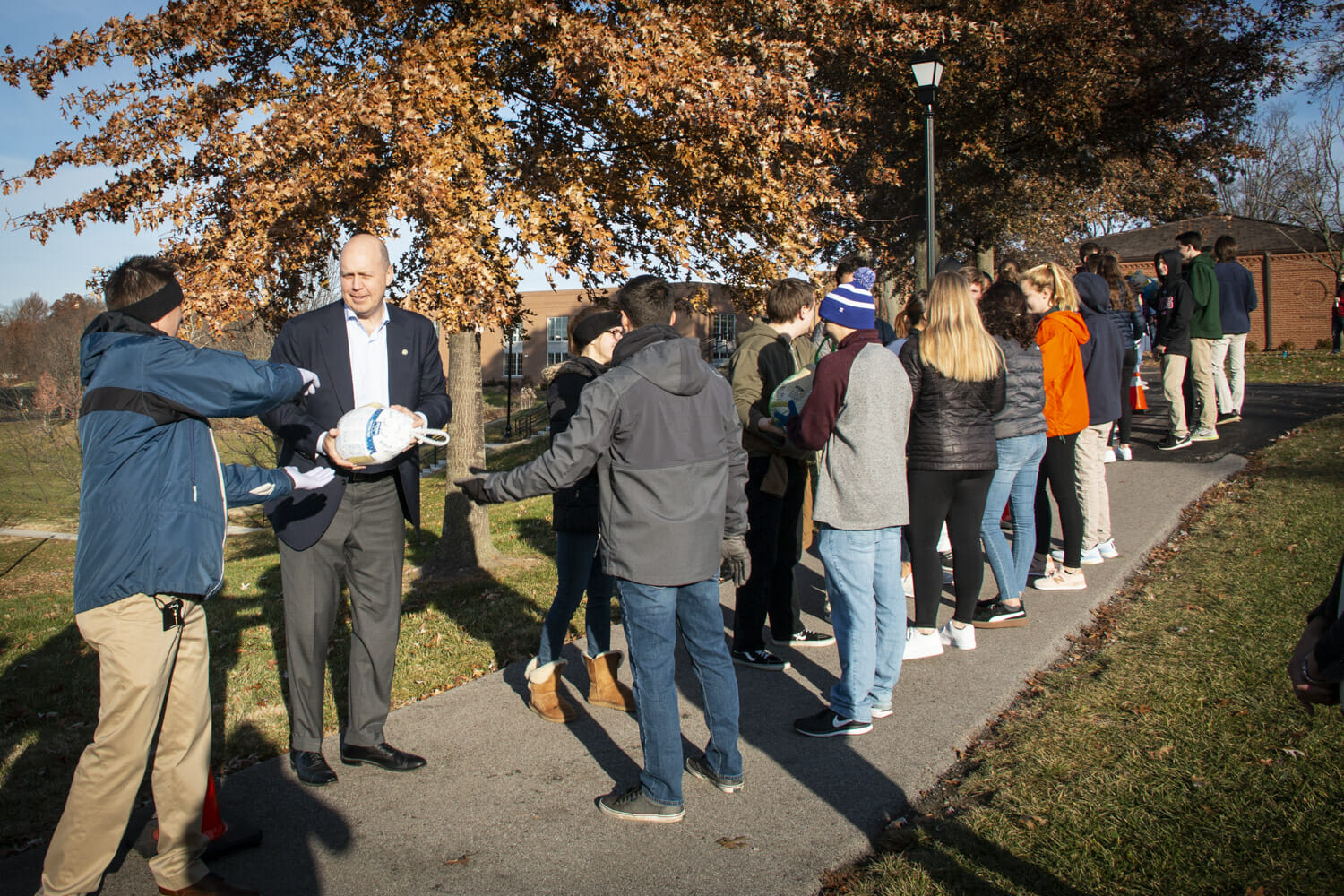In my home state of Virginia, there is a very fine independent school named Collegiate School that was led from 1960 to 1987 by a man named Buck Pitt. Mr. Pitt used to tell the story of a Thanksgiving tradition from his youth, when his family and other members of his church would pool their resources to purchase food for people in their community who might not otherwise be able to afford a traditional feast. They would buy turkey, of course, and stuffing and gravy and mashed potatoes and green beans and rolls, and maybe even delicious Brussels sprouts.
After buying the food, they would gather to assemble meal baskets, and then they would deliver them to people whom they had identified as most likely to benefit from their charity. As you would expect, this act of kindness was received with gratitude at almost every home – sometimes with laughter, sometimes with hugs, sometimes with tears. But Mr. Pitt recalled one home that was an exception. The woman who lived there met him and his family at the door gruffly, received the meal basket without saying “thank you,” and then began to rifle through its contents. After spilling onto her front stoop the food items that had been so carefully and generously prepared for her, she had only one question: “Where are the cranberries?”
Those of us who know this story – who either heard Mr. Pitt tell it or, like me, heard it often retold – have come to understand the woman’s question as a shorthand for ingratitude. Within its immediate literal context, “Where are the cranberries?” represents the ingratitude of those who lack financial resources for the benevolence of those who have them, but this is too narrow and lofty a window through which to regard the story. It misses Mr. Pitt’s larger lesson, which is this: We are all, at different times in our lives, that woman on her front stoop, overlooking the gift of the turkey and complaining that there are no cranberries.
Poverty is not a prerequisite for ingratitude. Is there really any difference between being given a Thanksgiving meal and wishing there were cranberries and being given an iPhone 8 and wishing it were an iPhone 11? Or being given an opportunity to perform in a play and wishing you had the starring role? How much time do we spend lamenting the things that we do not have rather than appreciating the things that we do?
The New York Times writer David Brooks once admitted that he is sometimes grumpy when he stays at luxury hotels because he has “certain expectations about the service that’s going to be provided.” Gratitude, he writes, is the absence of such expectations. “People with dispositional gratitude take nothing for granted. [They] are hyperaware of their continual dependence on others. They treasure the way they have been fashioned by parents, friends and ancestors. [They] are continually struck by the fact that they are given far more than they pay for – and are much richer than they deserve.”
The Turkey Train is as much a gift to us today as it is a gift to families who will depend on the St. Louis Area Foodbank this Thanksgiving. It is the gift of understanding that just as we have lined up to provide sustenance to those who need it, so have we depended on the sustenance that others have lined up to give to us, in ways that we know and in ways that we will never know. Appreciating the Turkey Trains in our own lives, and being deeply grateful for them, is the gift of today’s Turkey Train to each of us, if only we will receive it.
So the next time you hear yourself beginning a sentence with words like “Why can’t I” or “How come we don’t have” or “I just wish,” you might ask yourself whether or not what you really want to know is “Where are the cranberries?” And then you might try to open your eyes to the delicious turkey – and stuffing and gravy and mashed potatoes and green beans and rolls, and maybe even Brussels sprouts – that are all laid out before you. And you might remember the long lines of people who have brought this bounty to you, and you might take pride in being part of a long line of people who are bringing a bounty to others in turn.
To give and to be grateful. These are the twin spirits of this wonderful holiday week. Thank you for your generous gifts to the St. Louis Area Foodbank, and happy Thanksgiving to you and your families.
Jay Rainey
Head of School
(Adapted from my remarks made at the All-School Assembly after Turkey Train.)
